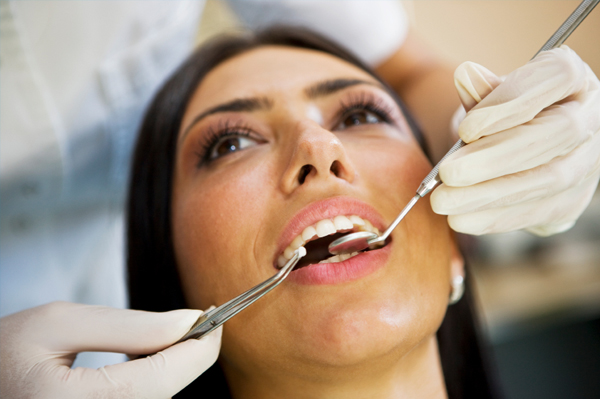Healthy TeethThough tooth enamel, the thin but sturdy calcified material covering your teeth, is the hardest and most mineralized substance in your body, it isn’t indestructible. In fact, it can be damaged by seemingly benign foods and drinks as well as poor dental habits. Here are the signs of enamel erosion and ways to promote your tooth enamel health.

Dental technology has certainly advanced over the years, with the development of effective whitening treatments and less invasive means of repairing damaged teeth. But that doesn't mean you should slack off on your dental hygiene with the lazy attitude that your dentist can quickly fix you up when your dental health goes awry. Daily brushing and flossing go a long way in protecting your teeth, but other factors can put your dental health, particularly your tooth enamel, at risk.
Factors that damage tooth enamelOne of the most common causes of enamel erosion is acid. Your mouth can be a highly acidic environment when you drink or eat foods that have a low pH. Under natural, healthy conditions, your saliva is slightly alkaline and doesn't pose a danger to your enamel. When you regularly consume soft drinks, fruit juices, vinegar-based salad dressings, pickled foods and other high-acid items, however, you lower the pH in your mouth and increase your risk of enamel erosion.
Sticky, sweet foods are detrimental, too -- they can adhere to your teeth (until your next brushing) and prevent your saliva from neutralizing the acidity where the sugary food is stuck.
Other causes of enamel erosion include poor brushing habits, gastroesophageal reflux (acid reflux) and bulimia nervosa (which repeatedly puts teeth in contact with highly corrosive stomach acid and can cause nutrient deficiences that can affect the teeth).
Signs of tooth enamel erosionEnamel covers and protects every one of your teeth. Because enamel can begin the early stages of erosion without producing any significant symptoms, be sure to check your teeth regularly and, most important, keep your scheduled dental visits.
See your dentist if you notice any of these signs of tooth enamel erosion:
Sensitive teeth -- Sensitivity worsens as erosion advances.Yellowing teeth -- Enamel erosion exposes the dentin underneath, which has a yellow hue.Transparent-looking tips of the teethRounded edges -- This is an early sign of tooth erosion.Cracks or dents in the teeth -- An advanced sign of erosion; see your dentist immediately.Dental caries -- Cavities can form where enamel is worn away.Tips to prevent tooth enamel erosion1. Brush and floss regularly.You heard it when you were a kid, and it's just as important now, particularly because you don't get to lose your teeth and have a new set grow in. Brush twice a day with a flouride toothpaste, and floss daily. Make it a point to brush your tongue, too, which can harbor bacteria that can damage teeth.
2. Visit your dentist for regular checkups and cleanings.Your dentist can detect the early signs of enamel erosion and work with you on a treatment plan to promote your tooth enamel health. Regular visits also can protect you from oral cancer, gum disease and other serious dental conditions.
3. Ditch the soft drinks.If your drink of choice is cola -- even diet cola! -- consider limiting your consumption or, at the very least, drink it through a straw so the liquid bypasses your teeth.
4. Limit acidic foods, sugars and starches.You don't need to give up your favorite foods; just consume a balanced diet with a variety of foods that will protect your teeth from daily acid-blasting. Space your acidic foods out and reduce your intake of sticky, sugary sweets and starches.
没有评论:
发表评论